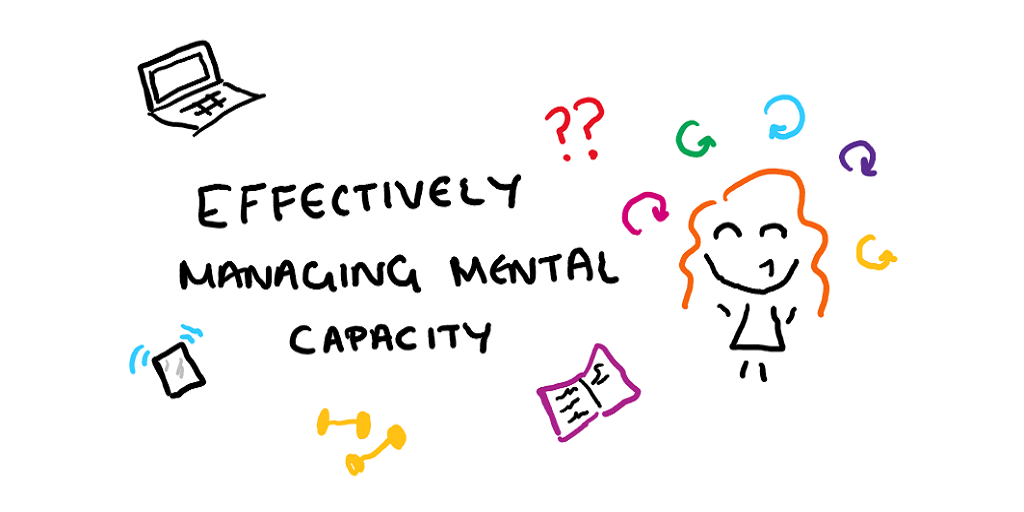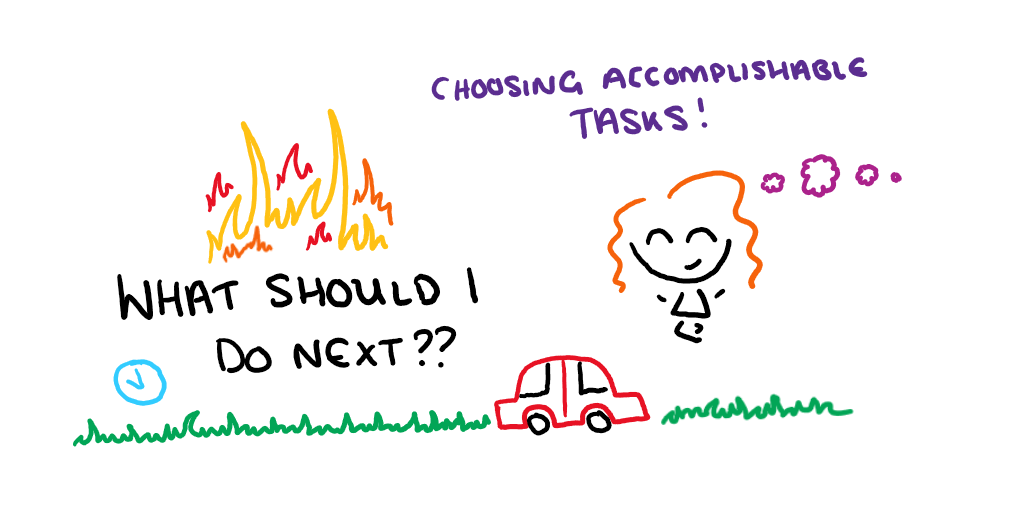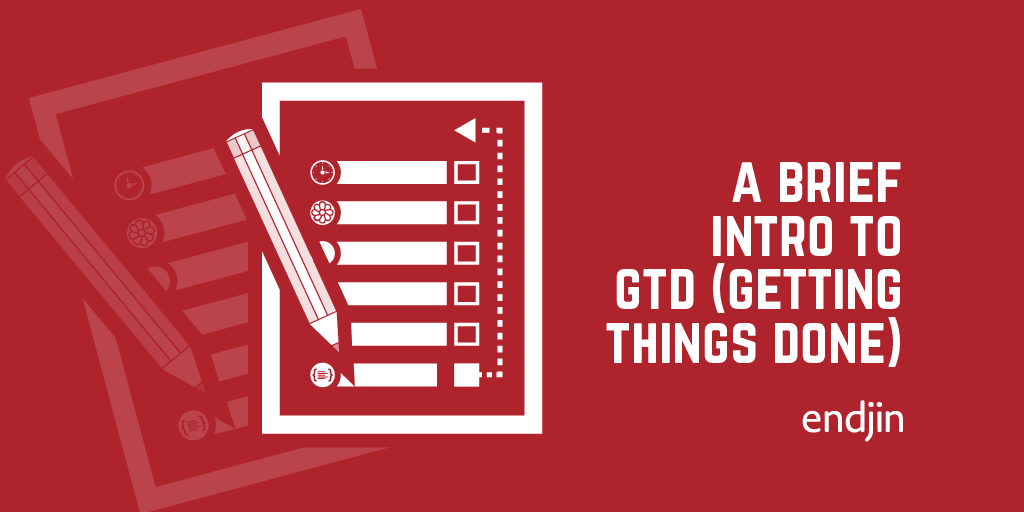Effectively managing mental capacity

I've been thinking a lot over the past few weeks about mental capacity (ironically probably using up some of my currently limited bandwidth).
This all started when I went on a course about "Getting Things Done" (Mike has written a great blog post about the system, so I won't go into too much detail, but definitely check out his blog if you're interested!).
The course was generally extremely useful in highlighting ways to better manage tasks (both personal and professional). But, the thinking around open tasks and mental capacity was the bit which instantly resonated with my experience.
Open loops
One of the first concepts we discussed was that any tasks you are mentally tracking constitute an "open loop". When articulated this made a lot of sense. At the time there was something that I had been periodically thinking about for the past 48 hours – "I need to pick up some washing powder".
This wasn't a crucial task that needed to be done within the next day, or even maybe the next week (no judgements on how regularly I do washing please), but it was something which I needed to remember to do at some point in the foreseeable future.
So, there was a part of my brain which was being taken up by remembering to do that. Not only that, but semi-regularly it was popping back into my head and distracting from whatever other thinking was going on. In this way the idea of an open loop made a lot of sense.

Mind sweeping
The way of dealing with these open loops is called a "mind sweep". A mind sweep it a way to identify these loops, and a way to close them (without having to complete every single task you are currently aware of). All that is involved is taking 5 minutes to just sit and search your mind for anything you're aware of that you "need to deal with". As you go, you make a quick note of each task which emerges, in no particular order.
Of all the exercises we carried out during the day, this was the one which had the biggest effect on me. After sitting there for just over a minute I had a list of nearly 30 items. These ranged from the above "buy washing powder", to "call mum", to "think about holidays". The notable thing was that many of these "tasks" were personal ones. I think I am fairly good at managing my backlog of work-related tasks. But until this moment I had no idea how much of my mental capacity was being taken up by remembering all the other things which I need to "keep in mind".
In getting these thoughts out on paper, I find I am then able to "let them go", because they are stored and tracked somewhere other than a corner of my brain. (It is probably a good idea to have some kind of system which means you remember to check the paper – but I'll refer you back to Mike's blog for that!)
So, I have started semi-regularly carrying out one of these "mind sweeps", and I would wholeheartedly recommend that everyone carries out this exercise at least once. You might be surprised at how much you're currently carrying.

How does this relate to now?
Now, I think it's important to recognise that since I went on this course, the world has changed. I have found that the "Getting Things Done" system feels harder to implement, when really what I "can get done" might change drastically from day to day.
However, and I know everyone will be experiencing this differently, but I have found that I suddenly have a lot less mental capacity than I did even 2 weeks ago. I think that I, for at least the first week or so, was massively underestimating how much time my brain was spending trying to process these changes.
I have spent a lot of time running through different scenarios, considering what I could do differently, trying to plan for an uncertain future.
But I have come to realise that a lot of these thoughts are similar to those same open loops which were present before all of this happened. I have therefore started to deal with them in a similar way.
I am someone who writes a lot, writes lists, writes notes, writes journals. And I have found that writing a journal around my thoughts and observations around the new state of the world has been invaluable in releasing some of that mental capacity. I know that this won't be something that will work for everyone. But I do think that the exercise of recognising and examining those thought processes is one that a lot of people might benefit from.
I can't pretend that I've got it all sorted out – I still feel a lot less productive than I did. But I think that in getting these thought processes out of my head and onto paper, I am starting a process of separating those thoughts from the rest of my mind. And that separation is something which I need in order to be able to continue to function.
So, whether any of this resonates with you or not, my advice is this:
Take a minute, sweep your mind, and see what you find.




